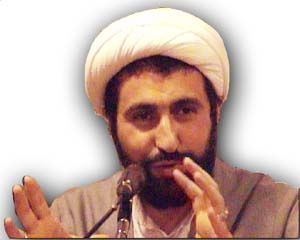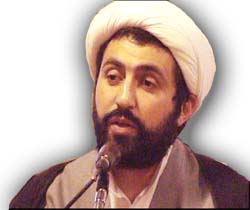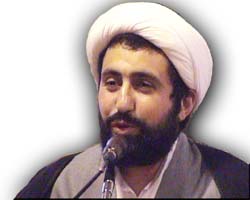|
SUMMARY:
SUFI / MYSTICAL APPROACH
HISTORY: After 10th century Mysticism (Irfan) separated
from Sufism, so now you have Arifs that are not Sufis such
as Allamah Tabatabai, and Sufis that do not understand Irfan,
as well as Sufis that are also Arifs.
THEORY: Aklaq is a journey - not static. Human being is
like a plant that grows - its not like a house that you
want to decorate with beautiful characteristics (i.e. philosophical
approach). No, human beings is in a process of being something.
The start point for your spiritual journey is to WAKE UP
- readies something is missing in your life.
The
Prophet (SAW) once said:
"
People are sleeping, only when they die do they wake up
- when its too late".
Then the next stage is repentance for example, and it goes
on, different people have mentioned different stages - some
have mentioned 50 stages, some have mentioned more.
The destination for Arifs (& Sufis) is to get close
to Allah - to loose your own self and become part of the
divine reality - this does not mean that we can become God
or for example we add something to God, no its just a way
of realising our nothingness.
For example if we look at the waves in the ocean - they
are all different but if we go beyond the differences we
can readies that they are nothing other than ocean - it
is just the ocean that has different manifestations. So
we are just manifestations of the Divine reality - we are
not part of God.
PROBLEMS: You need an experienced knowledgeable guide to
supervise your improvement - unfortunately in history some
have turned out to be cheats pretending to be guides, pirs,
etc.
Another problem with Sufism is that sometimes some people
are not 100% committed to Sharia. They say at the start
of your spiritual journey you need to practise the practical
laws - committed to sharia, but when you reach spirituality
(tarikah) - no longer a beginner you no longer need to say
your prayers, to fast, etc. This is completely wrong and
is based on misunderstanding of the Quran.
NARRATIONAL APPROACH
This is based on hadith. Scholars following this approach
list moral attributes and then for each moral character
they list relevant hadith. In hadith there are many insightful
explanations, directions, instructions.
|



